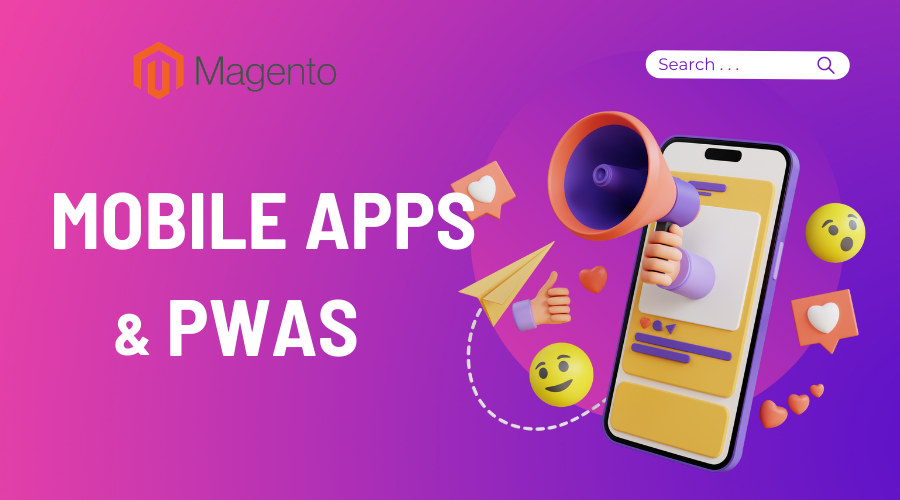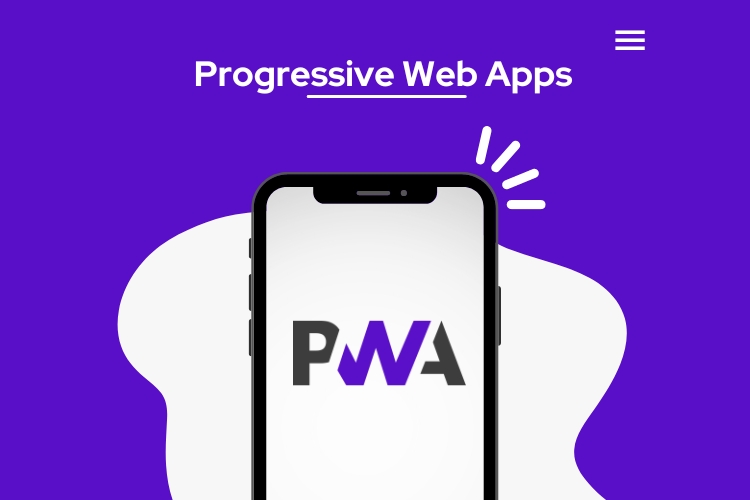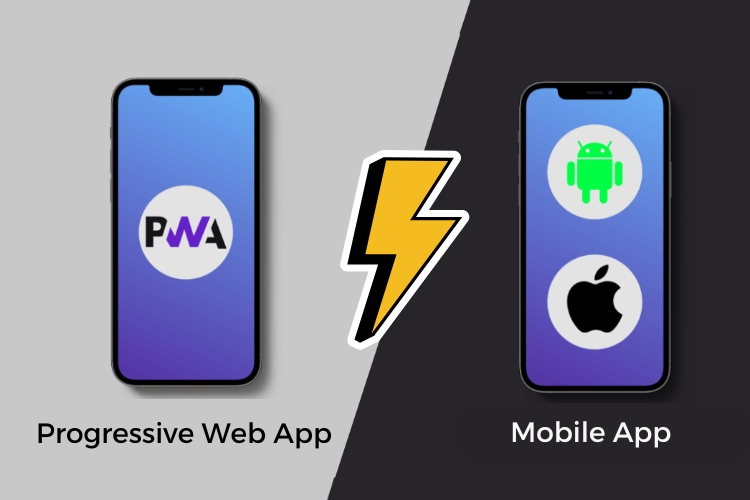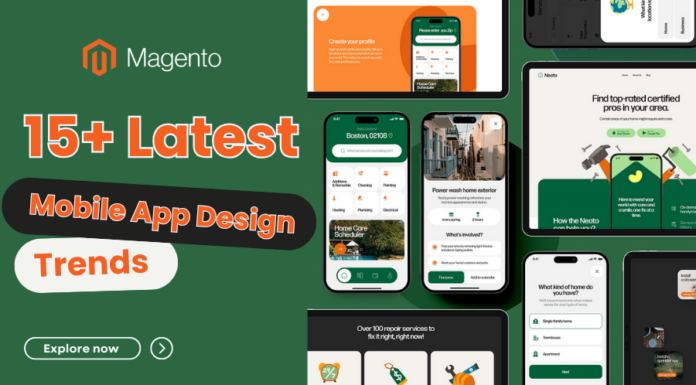
In today’s digital age, businesses of all dimensions are regularly seeking creative methods to get their target audience and deliver a seamless user experience. Two famous options that have emerged in recent years are mobile apps and progressive web apps (PWAs). Both options have their own set of benefits and considerations, deciding which to choose a critical one for any business. Let us explore the key benefits, and differences between mobile apps and PWAs and help you determine which option is the right fit for your business.
The benefits of mobile apps and PWAs help you decide which choice is good for your business: Mobile apps and PWAs.
Table of Contents
I. Understanding Mobile Apps
Mobile apps are software applications specially developed for mobile devices such as smartphones and tablets. They are downloaded and installed directly into the user’s device from an app store. Here are some benefits of mobile apps for your business:

1.1. Improved performance and functionality
Mobile apps offer excellent performance and functionality compared to PWAs. They are built using native programming languages, allowing them to access device elements like cameras, push notifications, GPS, and more. This level of integration allows a seamless and interactive user experience, perfect for resource-intensive tasks such as gaming or media streaming.
1.2. Enhanced user engagement
Mobile apps provide a direct channel of communication with your customers. Through push notifications, you can send personalized messages, updates, and proposals, guaranteeing better user engagement and increasing brand loyalty. The power to leverage features like offline access also permits users to access content even, without an internet connection, improving convenience and user satisfaction.
1.3. Monetizaton opportunities
Mobile apps offer various monetization possibilities for businesses. You can generate income through in-app purchases, subscription models, or by displaying targeted ads. These prospects make mobile apps a likely choice for businesses, including SEO agencies, to generate additional income streams and expand their service offerings.
II. Exploring Progressive Web Apps (PWAs)
Progressive Web Apps are web applications that function like native mobile apps but are accessed through a web browser. PWAs provide an alternative technique to engaging users without the need for installation. Here’s why PWAs could be useful for your business:

2.1. Broader reach and accessibility
Unlike mobile apps, PWAs are not limited to specific app stores and can be accessed instantly through a web browser. This makes them more available to a wider audience without the need for device-specific development and distribution processes. PWAs also eliminate the need for regular app updates as they are automatically updated in the background, ensuring users always have the latest version.
2.2. Cost-effective development
Building and maintaining a PWA can be more cost-effective compared to designing a mobile app for multiple platforms. With a PWA, you can leverage existing web development skills and codebase, lowering development time and costs. This can be specifically beneficial for SEO agencies and businesses looking for white-label SEO solutions, as PWAs provide a quicker and more affordable way to deliver their services to clients.
2.3. SEO-Friendly and discoverability
PWAs have inherent search engine optimization (SEO) benefits due to their web-based qualities. They are easily discoverable by search engines, letting your business benefit from organic search traffic. PWAs can be indexed by search engines and shown in search results, improving your online visibility and potentially attracting more users to your website.
When choosing between a mobile app and a PWA for your business, it’s crucial to consider your precise needs, target audience, and budget. Mobile apps offer outstanding performance and engagement, making them suitable for resource-intensive tasks and delivering personalized experiences. On the other hand, PWAs provide broader reach, accessibility, and cost-effective development, making them an ideal choice for businesses looking for a more affordable way to engage with their customers.
As an SEO agency or a business seeking white-label SEO solutions, PWAs can be particularly beneficial due to their SEO-friendly nature, discoverability, and cost-effective development. Finally, the decision should be based on your business objectives, target audience, and the functionality required to deliver an exceptional user experience.
Remember, whether you choose a mobile app or a PWA, partnering with an experienced SEO agency can help you optimize your online existence and drive organic traffic to your business. Embrace the possibilities that mobile apps or PWAs present, and stay ahead in the digital landscape.
III. The differences between Mobile apps and PWAs
With the growing demand for mobile accessibility, the choice between developing a mobile app or a Progressive Web App (PWA) has become a pivotal decision for businesses. We will explore the differences between mobile apps and PWAs and help you determine which option is the right fit for your business. Whether you’re considering a white label SEO solution or looking to enhance your digital presence, this guide will shed light on the path forward.

Mobile apps are standalone applications specifically designed for mobile devices such as smartphones and tablets. They are typically downloaded from app stores and installed directly on the device’s operating system. Mobile apps have direct access to device features like cameras, GPS, and push notifications, providing a seamless and optimized user experience. They are platform-specific, requiring separate development for iOS and Android devices. Additionally, mobile apps often require regular updates to introduce new features, fix bugs, and stay compatible with the evolving operating systems.
PWAs, on the other hand, are web applications that incorporate the best elements of websites and mobile apps. They are built utilizing web technologies such as HTML, CSS, and JavaScript, making them available via any modern web browser. Unlike mobile apps, PWAs do not require installation from an app store and can be readily accessed by merely visiting a website. This eliminates the requirement for users to download and install the app, saving useful device storage space. PWAs also offer the advantage of cross-platform compatibility, as they can work on diverse devices nevertheless of the operating system.
So, let’s exlore the key differences and considerations between Mobile apps and PWAs:
3.1. Development and Maintenance
Mobile apps require separate development for different platforms, which can increase costs and development time. On the other hand, PWAs offer a unified development process and can be maintained and updated more efficiently since changes are made on the server side.
3.2. Discoverability
Mobile apps benefit from being listed in app stores, which provides visibility and potential user acquisition. PWAs, on the contrary, rely on traditional web search results and SEO strategies to drive traffic and attract users.
3.3. User experience
Mobile apps provide a more immersive and optimized experience due to their access to device features. PWAs, while lacking some of these features, can still offer an engaging experience and work well in low-connectivity situations.
3.4. Storage space
Mobile apps occupy device storage, while PWAs run directly from the web browser without taking up significant space. This can be advantageous for users with limited storage capacity.
IV. Which is right for your business?
Choosing between Mobile apps and PWAs depends on your business requirements and objectives. Here are some factors to consider:
- User engagement: Mobile apps are ideal for businesses looking to deliver feature-rich and personalized experiences that leverage device capabilities. PWAs, on the other hand, are suitable for businesses prioritizing broad accessibility and discoverability.
- Budget and resources: Mobile app development can be costlier and require dedicated resources for ongoing maintenance. PWAs, being web-based, may provide a more cost-effective solution with streamlined development and updates.
- Audience reaches: If your target audience primarily uses mobile devices and prefers app store experiences, a mobile app may be the better choice. If your audience is diverse across different devices and platforms, a PWA offers wider accessibility.
V. Conclusion
While both mobile apps and PWAs have their advantages, the decision ultimately depends on your business goals, budget, target audience, and desired user experience. Consider your specific needs and weigh the pros and cons of each option. Whether you decide to invest in a white label SEO solution or embrace the power of mobile apps or PWAs, the key is to align your choice with your business objectives to create a successful digital presence.












![[SALE OFF] Discount 30% All Premium Extensions On Christmas And New Year 2025 christmas-and-new-year-2025](https://landofcoder.b-cdn.net/wp-content/uploads/2024/12/christmas-and-new-year-2025-1-218x150.png)






